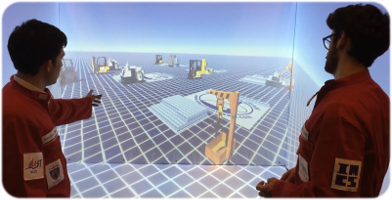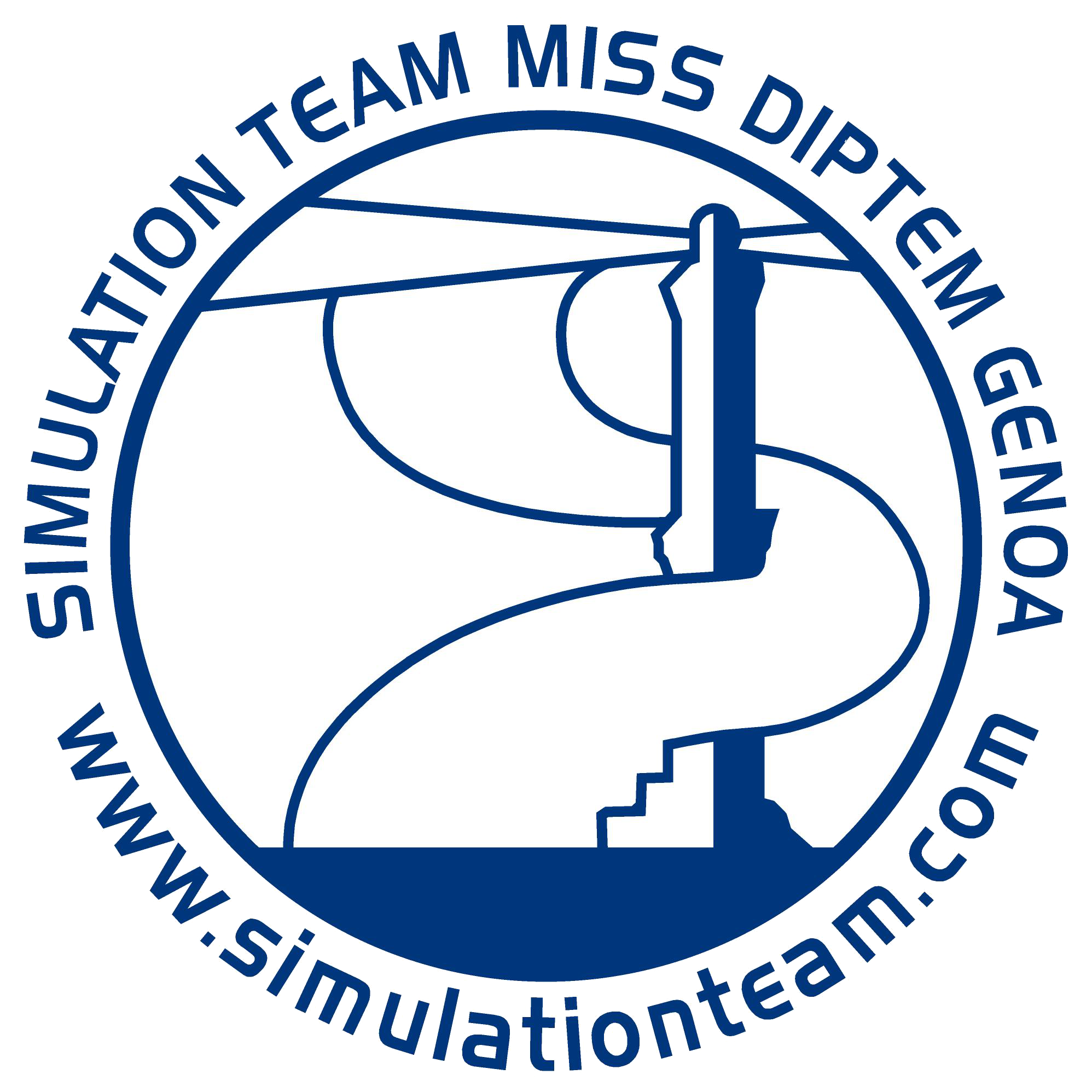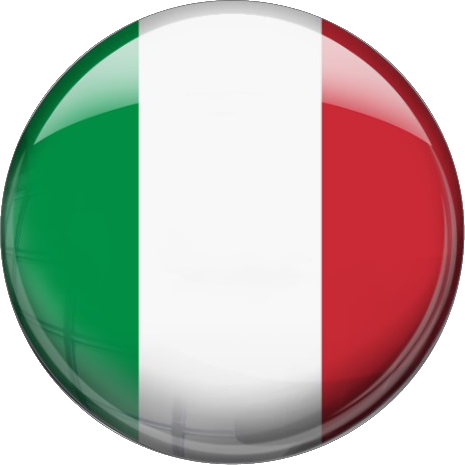




Industrial Logistics 1
Scientific Domain ING-IND/17 Credits 5 (32796)
Educational Objectives
This Course deals with Industrial Logistics and it aims to
provide the General Criteria and Quantitative Methods that support
the Design, Re-Engineering, Planning and Management of Logistics Systems.
Industrial Logistics teaches how to develop Integrated and Flexible Industrial Logistics Networks
integrating Physical Material Flows and Information Streams able to guarantee a High Quality
of Products & Service to Customers, the Reduction of Response Time and the Containment of Costs.
The Course provide the guidelines to measure the Performance of Logistics and Operations.
Course Topics
- Techniques and Methodologies: Logistics Function Definition.
History of the Evolution of Logistics. Logistics Current State. Major Industrial Typologies.
Supply Chain Management.
Integrated Supply Chain: Sourcing, Manufacturing, Distribution, Sales, After-sales, Logistics,
Logistics Networks, Reverse Logistics.
Role of logistics in the different phases of the life cycle of a product.
Cost Analysis Survey and Analysis of Logistics Costs. The Outsourcing of Logistics Services.
Measuring Logistics Performance.
The Customer Service as a Strategic Dimension, Service and Logistics, Measuring the Logistics Performance,
KPI Analysis, Product Service and Perceived Service, Service Factors, Support to Sales and Marketing, Quantitative Evaluations,
Product Range, Transnational Factors, Measuring the Produced Service Performance, Measurement of Perceived Performance,
Structure and Analysis of a Logistics Survey, Service Strategy, Service and Total Logistics Cost,
the Excellence Frontier, the Matrix Service Cost, Characteristics of the Company Logistics oriented Forecasts & Inventory Management,
the Function of Storage, Inventory Management as a Logistics Business, Storage and Inventories,
Evaluation of Inventories, Warehouses, Inventory Cycle and Safety Stock.
The Inventories for Economies of Scale, Economic Order Quantity, Reorder Point
and Reorder Intervals. Emergency Stocks.
Performance Measurement & Service Levels over Logistics Cycles and Expected Shortage per Cycle,
Methods to Reduce Safety Stocks, Inventory Pooling, Customer Aggregation, Aggregation of Products,
Inventory Costs and Warehouse Fees, determining the Retention Rate ,
Analysis of Expected Costs of Stock Outs, Optimum Degree of Inventory Coverage,
Strategic Inventory Analysis, ABC Analysis
- Internal Logistics: Transport Systems, Internal Handling Systems.
Traditional Solutions, Forklifts, Rigid Conveyors. Flexible Systems, Automatic Guided Vehicles (AGV).
Storage Systems The Function of Warehouses, Characteristics & Indexes.
Methods of Storage and Types of Warehouses. Criteria for the Design of a Warehouse.
Automation & Information Flows in Storage Systems.
Intensive Automated Warehouses. Storage Yards and Cranes.
- Distribution Logistics: Streams of Activities in Logistics.
The Transport Mode as Competitive Factor. Intermodal Transport.
Evolutionary Scenarios of Freight Transport and Logistics.
The Information Flow of Production in Integrated Logistics Management. The Planning and Control Processes.
The Planning of Material Requirements. The Requirements to Systems: Material Requirement Planning
and Just In Time. The base-stock Systems: Models to Reorder by Fixed Quantity, by Fixed Reorder Time.
Generated Skills
Overall view of the Industrial Logistics Systems,
Analysis and Synthesis Capability on Logistics Networks and Flows, Mastering
Elementary Techniques of Calculus and Statistics for Logistics
Prerequisites
The Lectures and Exercises provides all the basic required elements to succeed in the Course, therefore
some knowledge of business management, mechanical systems, operational management could be useful.
Educational Modes
Lectures and Exercises in the Classroom; Competitive Team and/or collaborative Working on Logistics Projects;
Simulation, RPG and Presentation of Experiences from Company Experts
Procedure for Final Evaluation
The examination is based on a written examination and an oral test;
it is also possible to proceed directly to the oral test by participating in Live Exercises
in the Classroom along the year.
References
- Web Site: www.itim.unige.it/cs
- Update Course Program: st.itim.unige.it/cs/logistics/program.html
- Bruzzone A.G. (2010) "Industrial Logistics", DIPTEM Technical Report, University of Genoa,
Genova, Italy
- Ayers J.B. (2001) "Handbook of Supply Chain Management", CRC Press Boca Raton, USA
- Chopra, S., Meindl, P., (2001), "Supply chain management", Prentice Hall, Upper Saddle River, New Jersey
- Christopher, M., (1998), Logistics and Supply Chain management", Prentice and Hall, London
- Pareschi A., Persona A., Ferrari E., Regattieri A. (2002) "Logistica Integrata e Flessibile", Esculapio, Leonardo
- Shapiro J.F. (2001) "Modeling the Supply Chain", Buxbury, Pacific Grove, CA
- Stern C.W., Stalk G. (1998) "Perspective on Strategy", John Wiley & Sons, Hoboken, NJ
- Bruzzone A.G., Mosca R., Revetria R. (2001). "Gestione Integrata di Sistemi Produttivi Interagenti: Metodi Quantitativi Avanzati per la Quick Response", DIP Genova, Italy, ISBN: 88-900732-0-9
- Bronson R., Naadimuthu G. (1997) "Operations Research", McGraw Hill, NYC
- Gousty Yvon (1997) "Le Genie Industriel", Presse Universitaire Paris
- Hill David (1996) "Object-Oriented Simulation", Addison Wesley, Reading MA
- Monks J., (1996) "Operation Management", McGraw Hill, NYC
- Montgomery D.C. (2000) "Design and Analysis of Experiments", John Wiley & Sons, New York
- Spiegel M.R., Schiller L.J.(1999) " Statistics", McGraw Hill, NYC
- Ohno T., (1978) "Toyota Production System", Diamond, Tokio
- Suggested Books
Industrial Logistics 2
Scientific Domain ING-IND/17 Credits 5 (41656)
Educational Objectives
The Course addresses Industrial Logistics with the aim of
presenting and transmitting the criteria and
knowledge of recent developments in the Sector in terms of Management, Engineering,
Business Evolution, Technologies, Methodologies and Techniques, Standards and Regulations.
Course content
1)Logistics Networks, Supply Chain Management & Logistics
2)Supply Chain Planning & Organization, Supply Chain Metrics benchamarks, Competitive Requirements, Changing Logistics in Existing Organizations, Measuring Actual Performances in Logistics
3)Design Material Flow; Review of Material Flow and Refining Geographical Maps, Disconnect Analysis, Fishbone Analysis, Opportunity Analysis, Quit Hit Plans in Supply Chains, Planning Logistics Transition Phase
4) Work and Information Flow Analysis and Design, Swim Design, Information Flow BluePrints, Project Portfolio & ROI Analysis, Solution Implementation, SCOR Model Overview
5)Enabling Technologies in Logistics vs. Logistics Processes, Existing Opportunities: Trade-off Analysis
6)Market Evolution and Logistics Requirments, New Opportunies, Existing Gaps, Critical Trends
7)Logistics & Safety/Security: World Scenario Evolution, New Regulations and Requirements
8)Business Case Studies: Retail Supply Chains: Grocery, Food, Automotive, Textile
Operational Capabilities
Capability to follow the Roadmap for Developing Modern Industrial Logistics Solutions,
Analysis and Synthesis Capabilities on Logistics Flows and Networks
Mastering of Advanced Techniques for Logistics Network Design, Re-Engineering and Management
Prerequisities
The Lectures and Exercises provides all the basic required elements to succeed in the Course, therefore
some knowledge on Business & Project management, mechanical systems, operational management could be useful.
Educational Modes
Lectures and Exercises in the Classroom; Competitive Team and/or collaborative Working on Logistics Projects;
Simulation, RPG and Presentation of Experiences from Company Experts
Procedure for Final Evaluation
The examination is an oral defense related to an Industrial Logistics Case fully integrated with
the Exercises carried out in the Class during the Year.
References
Web Site: www.itim.unige.it/cs
Program: st.itim.unige.it/cs/logistics/program.htm
Bruzzone A.G. (2010) "Industrial Logistics", DIPTEM Technical Report, University of Genoa, Genova, Italy
Bolstorff P.,Rosenbaum R. (2003) "Supply Chain Excellence", Amacom, NYC
Baldwin C.Y., Clark K.B., Magretta J., Dyer J.H., Kumar N., Fisher M.L., Fites D.V., Normann R., Ramirez R., Womack J.P., Jones D.T. (1993) "Managing the Value Chain", Harvard Business Review, Boston, MA
Lambert D, Stock J., "Strategic Logistics Management", McGraw-Hill, 2001
Bayles D.L. (2001) "E-Commerce Logistics & Fulfillment", Prentice Hall Upper Saddle River, NJ
Poirier C.C., Bauer M.J. (2001) "E-Supply Chain", Berret Koehler, SF
Williams G.C. (2000) "Implementing SAP R/3 Sales and Distribution", McGraw Hill, NYC
Greenberg P. (2001) "CRM at the speed of Light", McGraw Hill, NYC
Bruzzone A.G., Mosca R., Revetria R. (2002) "Gestione della Supply Chain Mediante Federazione di Simulatori Interagenti: Compendium", DIP University of Genoa, Genoa, December ISBN 88-900732-1-7
Blackwell R.D. (1997) "From mind to Market:Reinventing the Retail Supply Chain".Harper Business, NYC
Bronson R., Naadimuthu G. (1997) "Operations Research", McGraw Hill, NYC
Gousty Yvon (1997) "Le Genie Industriel", Presse Universitaire Paris
Hill David (1996) "Object-Oriented Simulation", Addison Wesley, Reading MA
Monks J., (1996) "Operation Management", McGraw Hill, NYC
Spiegel M.R., Schiller L.J.(1999) " Statistics", McGraw Hill, NYC
Gross D. (1996) "Forbes Greatest Business Stories of All Time", John Wiley & Sons, Hoboken, NJ
Sun Tzu (2002) "The Art of War ", Dover Publications, Mineola, NY
Suggested Books
Copyright (c) 2004-2016 Agostino G. Bruzzone MITIM, DIPTEM, University of Genoa

